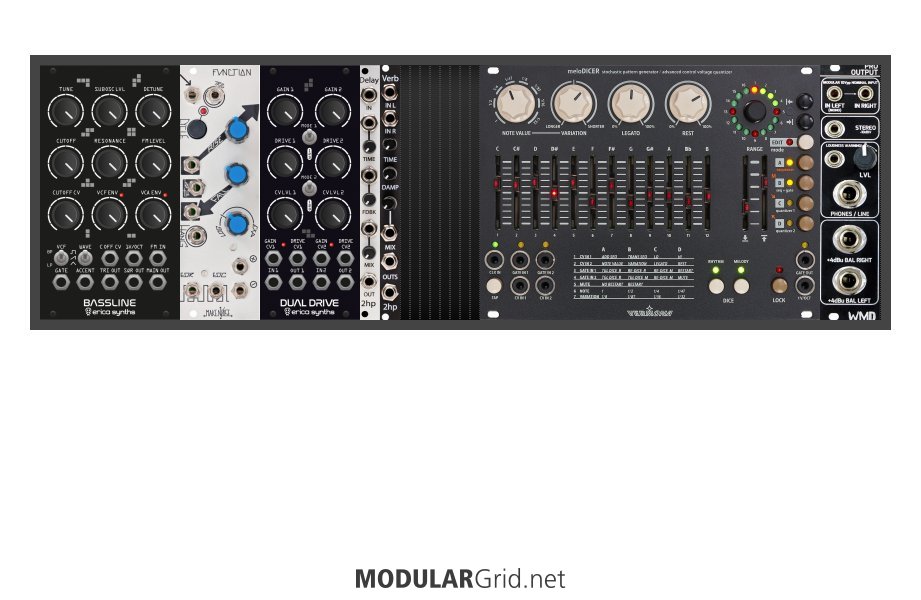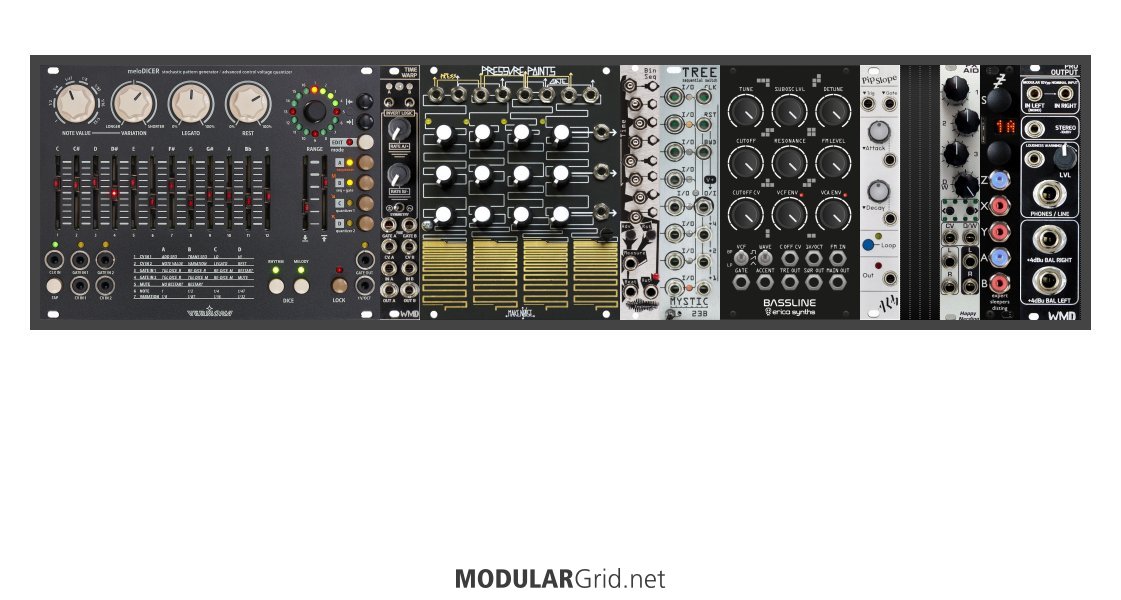as farkas said - @troux is likely to have some good advice...
I'm no expert on acid but I think you would benefit from a slew for portamento which is one of the main characteristics of acid (the slowed rise and drops to the notes) as far as I am aware
general issues that I can see though are:
the sequencer is single channel and you do not have a buffered mult to accurately make a copy of the v/oct signal to both the bassline and the pico voice - this would also benefit from a sample and hold or a second sequencer (and a precision adder - to accurately add the 2 v/oct signals together) - so you can derive a second sequence from the single channel - otherwise you will only be able to play an interval - which would be dependent on how you tune the voice modules
the sequencer has a quantizer built in so the 2hp tune module is redundant - redundancy is often good in modular - nay desirable, but not in this case at your stage of the journey
you may have confused the tune with a tuner, it's not (see above) - get a pedal and the appropriate cable or use your phone - I use a korg pitch black I had lieing around
both the bassline and the pico voice are voices as opposed to vcos - this implies that they have filters and vcas built in (the bassline definitely does - I have the DIY version) so the filter is kind of redundant and probably not in an overly desirable way either
you don't have any envelope generators - whilst you could use the gate from the sequencer to trigger both the voices (the passive mult will work perfectly for this) it is an on off switch - sending this first to an envelope generator is a good idea - even better sending it to 2 different envelope generators - with one channel going to a clock divider or some other method of altering it (a gate delay for example) would massively help in terms of making 2 melodic parts, one for each voice
no modulation source - you really want one of these - at least an lfo of some sort preferably 2, one that can sync to the clock and one that can run free at the same time - consider Maths - for the simple reason that it is a great learning module and incredibly versatile - see the illustrated manual for further details
what's the use case for the input module?
you don't have a mixer - most people would want to mix the 2 mono voices (and potentially your external sound source) before sending to the output module - if you desperately want stereo get a mixer that will pan mono signals to stereo - if your use case for the output module is headphones then get a mixer with headphone outs too - I started with (and still have a rebel technology mix02 which does both these things)
you may not need the output module - where are you geographically? US and japan apparently often need output modules because the power is unbalanced - in which case a balanced output is probably a better idea - otherwise they are often just a 'nice to have' module
small modules such as the mult and the pico modules are very awkward to deal with as they are so small (you have seen a module in real life haven't you?? some people are shocked by the size, even after watching weeks of video) you will want to space them out between bigger modules
it might be an idea to have a read through of these - the sticky threads in the eurorack sub-forum of muffwiggler, sound on sound magazine synth secrets series (available as a pdf online I believe) and there's a couple of older articles on starting modular synthesis that are good (if a bit dated), the muffwigglers book of bad ideas, the maths illustrated manual and read a load of other newbie threads - even if you think they are not relevant to you, because of genre - a lot of the advice will be generic
even if right now all you want to do is make a squelchy acid bassline - do the background research, it will serve you in good stead for the future - there's a reason it's often called eurocrack!
"some of the best base-level info to remember can be found in Jim's sigfile" @Lugia
Utility modules are the dull polish that makes the shiny modules actually shine!!!
sound sources < sound modifiers < modulation sources < utilities



